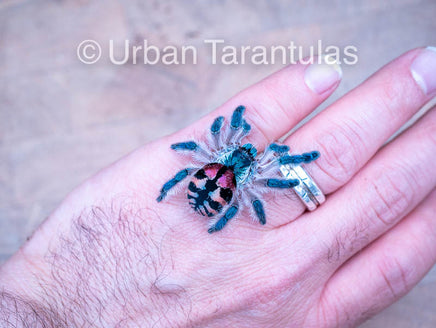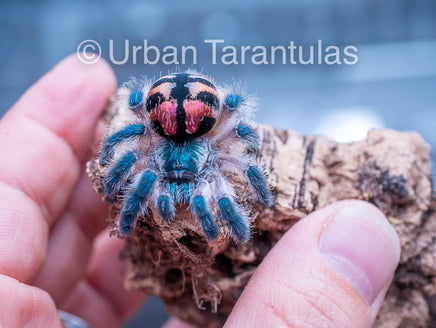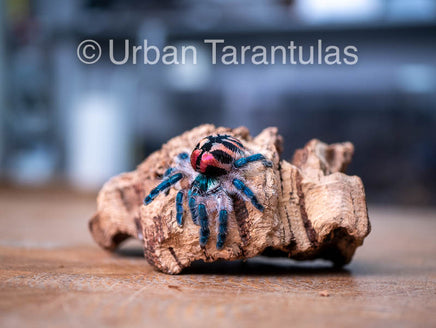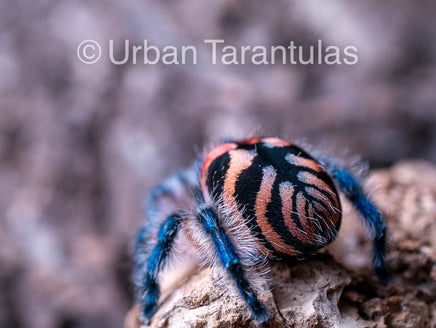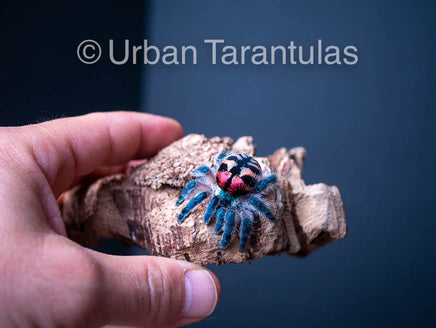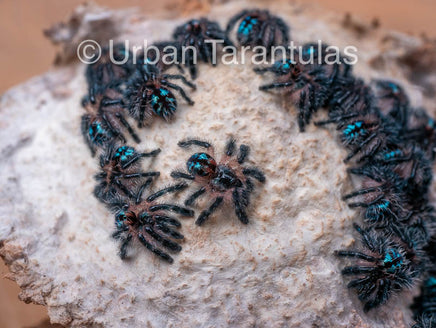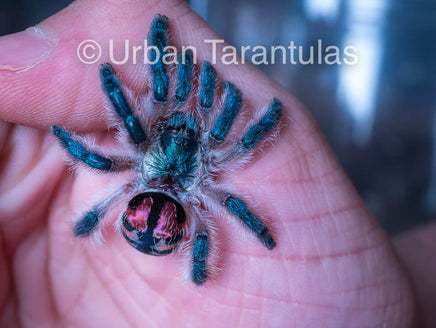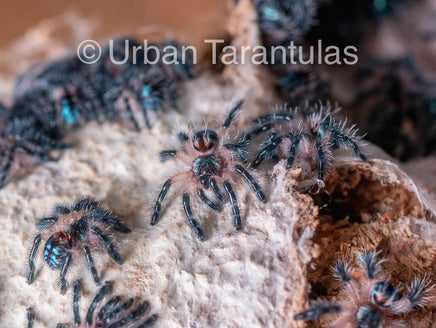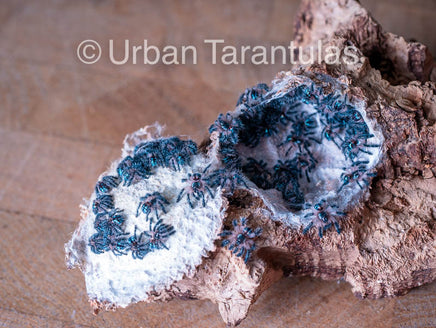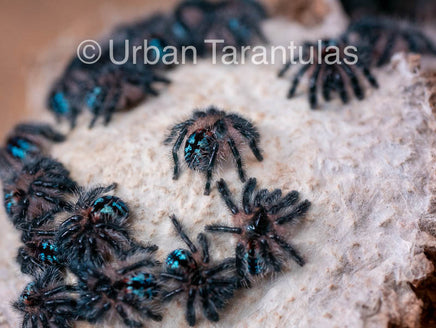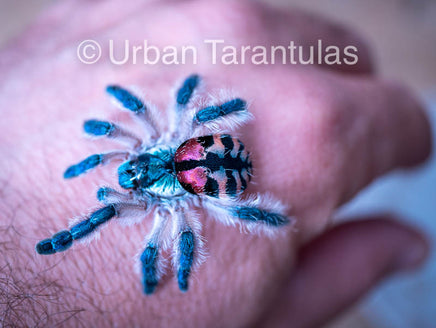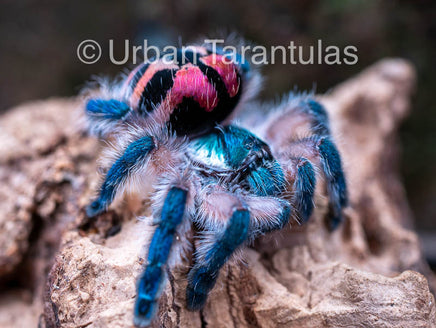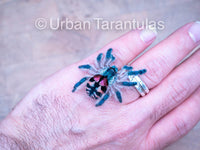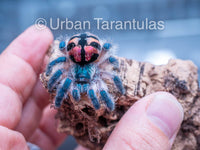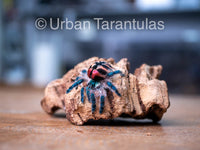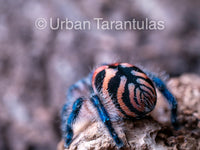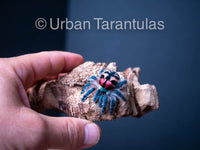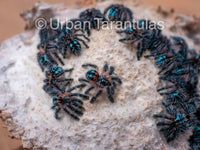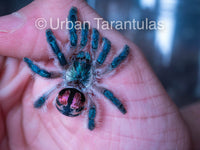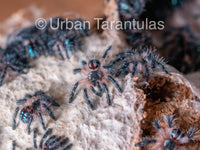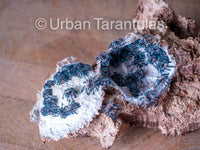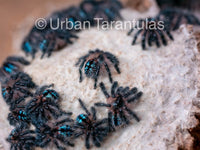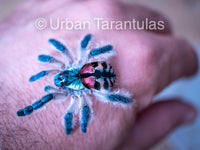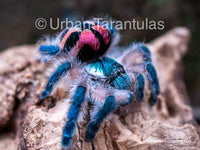Introducing the
* * * Brazilian Jewel Tarantula * * *
* * * * ~ Typhochlaena seladonia ~ * * * *
Shipping:
NOW!!!!
Make sure to watch this video before purchasing:
CLICK HERE
All Seledonias will have to go to a FedEx Hub pending pickup. We will locate the closest FedEx Hub to you, and ship it there.
To find the nearest one in your area, check this link:
CLICK HERE
Typhochlaena seladonia - Brazilian Jewel Tarantula
Introducing the Typhochlaena seladonia, widely celebrated as the Brazilian Jewel Tarantula. This species is a true marvel of the tarantula world, known for its vibrant, iridescent colors that range through greens, blues, reds, and golds, making it one of the most visually stunning tarantulas. Its rarity and striking appearance make it a prized possession for any serious collector or enthusiast looking for a unique addition to their terrarium.
Care Details
- Temperature: Ideal range for most tarantulas is 75 to 85°F (24 to 29°C). Tarantulas in warmer environments eat more, grow faster, and molt quicker.
- Humidity: The Typhochlaena seladonia thrives in a DRY environment. Water dishes are not necessary, but they pose no harm if used. I personally do not use them.
Housing:
What will be inside the box when you order a seledonia from me.
1. A seledonia spidering.
2. A piece of cork bark hide, complete with a built-in trapdoor, designed to mimic your tarantula's natural habitat.
3. A ready-to-use container filled with the ideal substrate for your new spiderling friend.
Diet
Small crickets, fruit flies, or any other small enough protein filled prey. You can try live feeding, if they do not take to, you can pre-kill the cricket or prey and leave it in there and the seledonia should scavenge.
In-depth Facts
- Latin name: Typhochlaena seladonia
-
Common name: Brazilian Jewel Tarantula, Jewel spider, Candy Shop Spider, Jeweled Pink Toe, Brazilian Pink Toe
- Type: Arboreal, Trapdoor artist.
- Locale: Endemic to Brazil
- Size: Typically reaches up to 2-3 inches in leg span.
- Urticating hairs: No, they do not possess urticating hairs.
- Growth rate: Moderate, but worth the wait!!
- Life span: Females can live up to 10-12 years, while males have a shorter lifespan.
- Recommended levels: Ideal for beginner and intermediate to the seasoned keepers.
Stay Connected:
- Instagram: Follow my Instagram, I'm most active here.
- YouTube: For care and education videos, check out my YouTube channel.
- Facebook: Over here I have all my reviews.
- TikTok: Visit my TikTok for additional content.
Safety Disclaimer:
Experiencing a tarantula bite is an extremely rare occurrence, and it's important to note that there have been no recorded fatalities due to a tarantula bite. The venom potency varies across species, with Old World tarantulas generally having stronger venom than their New World counterparts. Within the Old World category, the Poecilotheria genus is known for having particularly potent venom.
It's crucial to approach tarantulas with respect and understanding. If you happen to get bitten, which is unlikely, the key is to stay calm. In most cases, the discomfort is superficial and subsides within a few minutes to a few hours. However, bites from species with more potent venom may result in symptoms lasting up to a week. Remember, larger tarantulas tend to have more venom than smaller ones.
Please be aware that I cannot assume responsibility for bites. Tarantula handling should be done at your own risk. In my 11 years of experience with these creatures, I have only been bitten once, by a species with highly potent venom. While the experience was painful, the symptoms had completely disappeared after a week.
Handle tarantulas responsibly, and always prioritize your safety and the well-being of the tarantula.
